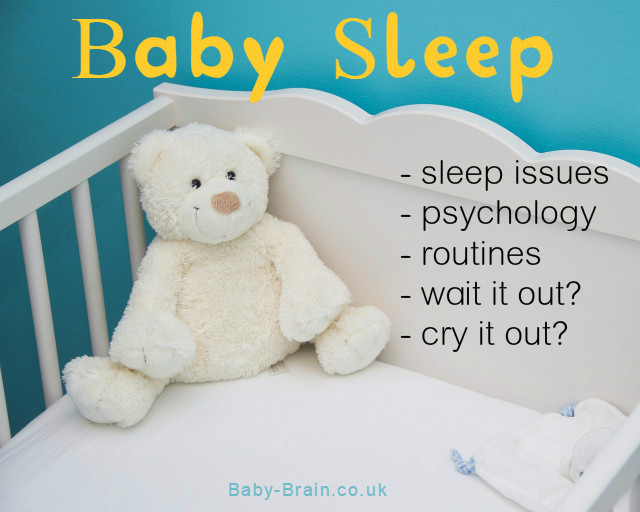Sleep
Teeth and Other Developments – Crawling, Teeth and Talking
The Little Lovely is now 6 months and 3 weeks. I discovered he has another new tooth today, on the top to the right of his newish front teeth (his Upper Lateral Incisors, apparently). He’s following the appropriate “tooth appearance in babies order” again, although this time I can’t see a second tooth coming through on the other side. Maybe it will turn up in a day or two, like what happened with his other teeth (see the tooth for the price of one posts here and here about his bottom and upper front teeth).
This might explain why he had some poor sleep during the week and wanted to get up at 5:30am on a couple of days. I’m afraid 5:30am is not “morning”, it is not a time that should exist where I should be up in the “morning”. But, I had to because LL didn’t want to sleep any more. He used to want to get up at about 8:30am. This then changed to 6:30am and then down to 5:30 amand even 5:10am last week. I’m starting to feel sorry for the lady I spoke about in the Sleep Lady post where her baby slept through the night but wanted to get up at 5am every day. I previously didn’t have much sympathy because her child slept through the night and at least she got uninterrupted sleep for several hours. Don’t worry, LL is still not sleeping through the night, but I can now appreciate the woman’s complaint a little more (although I’d still rather LL slept through the night and woke up at 5am than wake several times during the night and get up later at 8:30am).
Ok, and so other than teeth and sleep, what else is LL up to? He is mostly crawling backwards, and has been for some time now, but can now bring a hand off the ground when in a crawling position and do something with it like hit the floor or hold a ball now. He can stretch out and lunge forward a bit. He can’t crawl forward traditionally but will do a strange improvised-movement-thingy where he sits, moves onto all fours and a crawling position, stretches, then goes back into a sitting position but will be sitting a bit further forward than he was to start with, so over time he can actually shuffle himself across the floor.
We also witnessed him pushing himself up today onto his feet for a few seconds, although can’t stand at all. He was also doing some massive push ups a few weeks ago (baby push up; picture on right), and now sits with his legs in an odd position as seen in the picture above. Maybe this is for more stability?
He’s also started to get more vocal; I think his first words might be dadada as he is making similar sounds now. This has developed in the last few days. Of course, there’s the issue about whether it’s a proper “word” or language if the speaker does not consciously assign any meaning to it (dadada is just a sound he makes because he is developmentally able and ready to make it – it doesn’t mean he is saying daddy or means dad). Meaning comes a bit later, apparently at about 1 year old, according to this article about talking from the baby center. I found this article from the Child Development Club on “is my baby trying to talk to me” (written by a Speech-Language Pathologist specialising in early intervention for infants and toddlers) to be quite interesting on this topic. She writes that:
The difference between babbling and talking hinges on intent and meaning.
And so if a child is actually using a word they are using them intentionally with the purpose of communicating with you. However, adults and parents assist the child in developing meaning behind their communications by reflecting meaning back and reinforcing and confirming communications. For example, the article writes that the development of a child’s communication can depend on how you react. If your baby smiles when you pick them up and swing them around, he might be smiling because he likes it and it feels nice. Baby might not be intentionally trying to communicate his happiness and feelings to you. However, we see the smile and because we are insightful and experienced adults, we interpret that to mean that he is a happy baby and likes it when you swing him. You therefore continue to swing him and baby learns that a smile lets you know that he likes something or wants more of it.
The author outlines that in a similar vein, when babies smile, babble something or wave their arms about like they are waving “hello”, they are probably not intentionally communicating something to us at first, but after a while these babbles, smiles and waving become more intentional because of the way we react to them. It’s similar with verbal communications such as a general dadada babble, where we might respond and confirm by saying “yes daddy, da da da” – and point to daddy, or play a game of “where’s daddy” or something – dadada then becomes daddy and baby begins to understand that his sounds can be meaningful. So, from what I understand, it looks like parents construct meaning with their children. At least until the child mixes more socially and picks stuff up from others. And so, the article finishes with this:
And remember, treat your baby’s vocalizations as if they are meaningful and your baby will begin to understand the power of speech.
Thank you for reading – Teeth and Other Developments – Crawling, Teeth and Talking – Baby-brain.co.uk – psychology resource, perspective & blog on motherhood
The Sleep Lady
So yesterday the Little Lovely and I went to a baby talk thingy about sleep (aged 5 months)
We’d actually been to it before, a couple of months ago, and the session was being run again by a sleep expert woman that you can hire the services of for quite a lot of money. She kept it quite generic as there were a lot of mothers there with various issues but some common aspects among us, mostly being that baby was not sleeping as long as we’d like them to (of course) or issues with getting baby off to sleep. It was very interesting to go, normalised the sleep issues because, as we discussed, even if you have some “friend” or mother you come across that states that their child sleeps for 12 hours at night uninterrupted, that is the exception and not the norm. I’ll add though that the babies here were probably all under 8-10 months old.
It also made me think that maybe LL’s sleeping isn’t that bad afterall! Sure, i’m up about 3 times a night to feed him and I get about 2-3 hour stretches of sleep, but some of the mothers there were up 7 times a night and one spoke about how her baby scratches himself at night and only falls asleep by scratching himself. She had to put gloves on him. The sleep lady thought that the touching and scratching was something he did to stimulate himself and help get himself to sleep and suggested a comforter with tags or something tactile on it. Interesting situation; wish we’d spoken about it more but unfortunately someone with a louder voice took up a lot of the time (as is often the case in groups) about how her child sleeps from 8 until 5am, but she couldn’t get him to sleep any later than 5am and was tired of getting up so early. Someone eventually commented, when the group couldn’t find any satisfactory solution, maybe she should be happy that her child is sleeping for 9 hours at a time because most of us are not. Harsh, but true especially when speaking to a group of sleep deprived mothers who have been deprived for about half a year or more.
Other issues we talked about:
-
sleep associations
-
independent comforters – for example using a comforter, blanket, something that is independent from you and is not the breast, being rocked by you etc, so that baby can use this to feel secure and self sooth and you do not need to be there every time he falls sleeps. We tried this with LL but it never really took off. I bought a nice comforter blanket and slept with it for a few nights (as the sleep lady recommended, to get your smell on it) and got it out when feeding LL (the sleep lady recommended actually putting it between you and baby when feeding) but he wasn’t interested. Another thing I could have done but didn’t would be to play with it with LL and associate it with fun and get him more used to it.
-
putting baby down when sleeping/drowsy – using whatever method you use for baby to get sleepy e.g. rocking, cuddles, etc, but not using these to the point where he is actually asleep and therefore teaching baby the skill of falling asleep independently (much easier said than done, of course)
-
a good bedtime routine, nap routines including use of certain words such as “sleeping time now” or any other word cues. Basically, weaving some cues into the routine so that baby can start to recognise it’s nearly sleep time by using words, song, actions like reading a book
-
something called “wake to sleep” – i’ve not heard of this, I need to look into it more (note to self – look into this)
-
shaping naps with baby after 5 months of age – this was good to hear because i was thinking that we need to start getting a good nap routine and schedule in place and LL is nearly 5 and half months.
-
start with one nap at a time, focus on it and then build on it – building on the above point, to focus on one nap and work on that to begin with – also good to hear because I have been focussing on the morning nap with LL and making sure we 1) do one! 2) he is in his cot 3) he falls asleep in his cot which he mostly does although sometimes I need to go into the bedroom and shush/pat or pick him up and comfort him a few times. We were previously doing morning naps in the buggy because LL only fell asleep by being pushed back and forth in it.
We also spoke about whether you should let your baby cry at night and there were mixed views. There was the view that “happy parent makes happy baby” and so if baby cries for a bit during “sleep training” but then sleeps better as the outcome then everyone in the family benefits. I know that this could be a contentious issue as some are very firmly no cry, and others are not. I have also come across the view that leaving baby to “cry it out” and “controlled crying” results in an eventual reduction of crying, a quieter baby and better sleeping because it actually develops learned helplessness – the baby stops crying and sleeps because they have learnt that nothing they do in the situation can help and they have no control. They have learnt this because the times that they did cry, they were left to cry, or were comforted but didn’t receieve a feed or get picked up or whatever else they were expecting. Therefore, they are helpless and give up, rather than the view that the sleep training intervention resulted in baby sleeping peacefully because they “learnt” to sleep, learnt that it is night time and therefore they should be tired and sleep.
Ψ here’s a nice short video and further info on the traditional meaning of learned helplessness, observations/research that led to the development of the term (Seligman), and it’s application to mental health (attributions)
Erm, not sure about this myself, seems bit extreme, I mean, we’re talking about behavioural aspects here. Ok, say there is a behaviour going on that is not really very nice and leads to some problems for another person, say for example, your child goes around hitting another child and screaming in their face. Most people would address this and implement some kind of behavioural strategy, maybe some kind of reinforcement or positive punishment such as telling the child off, removing a reward (negative punishment) etc.
Ψ Here’s a good page that explains positive/negative reinforcement and punishers – for example, they explain that “punishment” doesn’t necessarily mean there is a harmful or dangerous consequence, it’s a process where a consequence immediately follows a behaviour which decreases the future likelihood of that behaviour occurring. Positive punishment is where a negative consequence is put in place after the behaviour, like sending child to “time out” or telling them off, and negative punishment where a good thing or desired outcome is removed after the behaviour occurs, such as removing cake/sweets/ice cream because the child was “naughty”. Reinforcement is where behaviour increases. Positive reinforcement is where a behaviour increases because it’s followed by a positive/motivating consequence such as praise, reward, like giving a kid money (positive) for doing chores (the behaviour). Negative reinforcement is where behaviour increases because a negative consequence is removed, such as a kid does his chores (behaviour) to avoid being nagged to do it (negative).
Ψ punishers = want to decrease frequency/likelihood of a behaviour
Ψ reinforcers = want to increase frequency/likelihood of a behaviour
Anyway, what was my point~? I think it was that you might implement some kind of behavioural strategy or consequence for some behaviours but would we call the desired outcome, i.e. the kid stops screaming at and hitting the other child, an example of learned helplessness? Why implement the strategy in the first place? Well because not many people in the situation are benefiting – the other child isn’t, the parent isn’t, and what’s the child’s motivation or concern that is leading to him screaming and hitting? Because parents are “training” or “guiding” their child in something, be it sleep or other behaviours, why must the outcome be labelled learned helplessness? Each family and parent is different and has their own motivation and justification for what they do, and if by leaving their child to cry for a few minutes at a time while periodically comforting them (or not, depending on the parent), so that the outcome is that they can sleep and therefore better parent their children and cope with the day, then so be it.

I fell asleep
And so speaking of which, I’m also going to start working on some of these night time feeds because i’m not sure how good it is for either of us to be waking up every few hours. I might start with one and see what happens. Did I mention that I’ve been sleep deprived for almost half a year?
Please note: there are of course many other views and approaches to the change to one’s sleeping patterns that comes with children. See, for example, this post on something called “wait it out” (rather than cry it out, I assume).
A quote from the article (I especially like point 1 about sleep being developmental, not behavioural):
WIO or the “Wait it Out” Method of sleep training is a method with a few core beliefs:
1- Independent sleep is developmental not behavioral.
2- Needing comfort and closeness is an instinct not a preference.
3- Cries are communication not manipulation.
4- Babies can slowly and gently learn to be comfortable with independent sleep as they are developmentally ready.
5- The path each baby will take to independent sleep is unique.
6- The progression to independent sleep does not always feel like forward momentum.
Further relevant links:
-
sleep training and controlled crying information on mumsnet
-
on controlled crying, from the NHS – discussion of the research
-
a blog entry on the “wait it out method of sleep training” – is wait it out really a method? – and a list of more posts on “wait it out” from the same blog
-
an evolutionary perspective on why babies wake their mothers in the middle of the night – to breastfeed and therefore to reduce likelihood of siblings, therefore improving their chances of survival!
-
http://www.cry-sis.org.uk – the cry-sis helpline – Cry-sis offers support for families with excessively crying, sleepless and demanding babies – 08451 228 669
When will he sleep through the night?
So we are still getting up a few times a night for feeds.
The Little Lovely (LL) seems to wake up around 1am, 3:30/4am and then about 6:30am. Apparently 6:30am is classed as morning and doesn’t count as a night awakening. Well it does in my book because it’s still the middle of the night and too early for me. He goes to bed around 8pm so can now go a good 5 hours before waking which is great compared to the earlier months and weeks when I was getting up every 2 hours to feed him and it was horrible. I think I must have adapted to disturbed sleep and little sleep. I wonder if my sleep cycle has adapted so that the times LL wakes up actually coincide with the end of a sleep cycle? I have no idea if that’s possible.
What’s the research on this? (note to self – look into this)
So now I’m wondering if he should be sleeping without so many feeds and if I should be doing something about this – or if he is still too young. I don’t mind the first feed at 1am because he has had a good stretch of sleep. But is the next feed necessary? Should we just put up with it until he’s weaned or should we spend a few screamy nights of breaking the eat/sleep association)? Yaaay says LL’s father, to the latter idea. But what if he is genuinely hungry?
A quick look at the internet says that LL might be a “habitual waker” because he tends to wake at the same time every night. Apparently if he was going through a growth spurt and needed the food he would be waking at random times. We briefly attempted not feeding him during one waking the other night and all that happened was he cried at us and refused to be soothed or settled by cuddles, rocking or any other soothing and only calmed once he was fed.
Maybe I can try a briefer feed and slowly cut down on the length/time of feed to change the association between eating and sleeping (I have to suckle in order to fall asleep, otherwise I can’t do it alone).Although I’m not sure if a graded approach will work because I would still be feeding him to sleep, plus I’m very tired at 4am and might dose off and lose track of how long it’s been or it might work somewhat but take some time. And dosing off while nursing (both of us) is probably contributing to the issue.
I’ve found this:
PANTLEY’S GENTLE REMOVAL PLAN (See here)
More on how Pantley developed The No-Cry Sleep Solution and her research methods
from what I understand, this involves:
- Feeding baby when awake but rather than letting him fall asleep during the feed and whilst sucking, wait until he is relaxed and sleepy, then remove the breast/bottle just before falling asleep.
- If baby starts to look for the breast/bottle and tries to continue sucking then try to hold his mouth closed gently by putting a finger under his chin or some light pressure on the chin just below his lips (hmm, sounds easier said than done). You can rock the baby or say comforting words while doing this.
- If this doesn’t go down well then give the bottle/breast again and repeat the process until he falls asleep without sucking.
- When removing the breast/bottle, do this for about 10-60 seconds and count while you do this
- Repeat each night until baby can fall asleep on own and does not frequently wake at night.
- Work on this technique at bedtime, in particular the initial falling asleep as baby will probably want to fall asleep the same way for the rest of the night following any further awakenings.
- Once night time use of this method is achieved then it can also be used for naps.
- It could take several days or longer to break the association but you should eventually see a reduction in night awakenings
…… well we’ll see how well that goes down!
(see Pantley’s book if you are interested in more – I haven’t read it, just found the information above from general sleep and baby forum reading online)
The other option is just to not nurse LL to sleep in the first place and to break the association, or develop a new association there. We should try reading a book or singing a lullaby or something immediately before sleep.
- Rather than feeding him in the bedroom right before he falls asleep maybe I’ll feed him in the living room with a dim light – then take him into the bedroom for a story or another quiet activity immediately prior to sleep.





